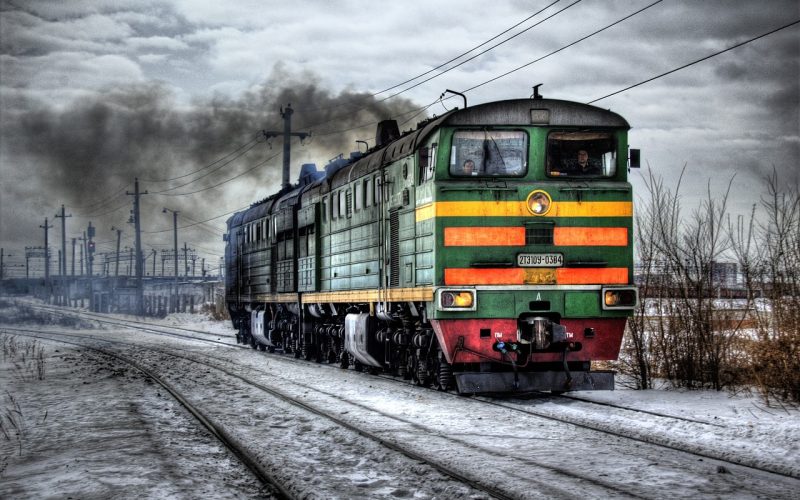Hey guys, today we will be taking out time to look at some of the influence of railroads on modern business practices.
Before we continue, let us look at how it all started. In the early 1800s, the introduction of railroads marked a pivotal moment in the development of the United States’ transportation infrastructure.
Revolutionizing Transportation: Railroads rapidly transformed the movement of people and goods across the nation. They became a game-changer by providing a quick and efficient means of transportation. The impact of this innovation on business practices was substantial.
Creating a National Market: Railroads played a crucial role in forging a unified national market for goods and services. The ability to transport products swiftly and inexpensively from one corner of the country to another spurred the growth of cities and industries along the rail routes. This, in turn, laid the foundation for modern business practices, as companies could now distribute their products on a much broader scale.
Read Also: 15 Easy Steps To Start A Chocolate-Covered Strawberry Business
Changing How Business Operates: The arrival of railways brought about a fundamental shift in how business was conducted. It introduced the concept of standardized time zones, a necessity to coordinate schedules and timetables efficiently. Additionally, the telegraph was employed for business transactions, allowing companies to communicate rapidly and conduct trade across great distances. This not only expedited the pace of commerce but also paved the way for the global business connections we see today.
Module 8B – Railroads
In the early days of the United States, moving things around was tough and costly for businesses. But then, something amazing happened – railroads were born.
These railroads completely changed the game. They let businesses move things fast and without spending a ton of money. This was a big deal for how businesses worked.
Today, railroads are like a best friend for businesses. They’re a crucial part of the modern economy. Businesses use them to send products to customers in a jiffy.
Imagine if we didn’t have railroads. Companies would be stuck using slower ways to move stuff, which would make it really hard to keep up in today’s fast-paced marketplace.
Which Two Inventors Contributed to the Rise of the Railroad Industry?
We can not talk about How Railroads Influence Modern Business Practices without talking about the birth and who was involved.
The birth of the railroad industry was driven by the pressing need for improved transportation of people and goods. It all began in the early 1800s, and as we ventured into the mid-19th century, railroads had firmly entrenched themselves as a vital component of the American economy.
Two remarkable inventors played pivotal roles in the railroad’s development: George Stephenson and Samuel Morse.
George Stephenson, a brilliant English engineer, left an indelible mark by constructing the very first public railway line in 1825. His steam locomotive, the Rocket, achieved such unprecedented success that it ignited a worldwide railway revolution, starting in Great Britain.
On the other side of the Atlantic, we find Samuel Morse, an American inventor renowned for his invention of the telegraph. It was in 1832 that he introduced a groundbreaking system of electric signals capable of long-distance communication. This technology found its way into the realm of railroads, enabling remote train control and significantly enhancing safety measures.
The impact of these pioneers and the rapid growth of railroads became a defining chapter in our history.
[Credit: www.history.com]What Impact Did Railroads Have on Businesses?
Now we have know about inventors that contributed some much in the railroad industry, let us know more about their impact on our business.
During the early days of railroads, businesses didn’t exactly roll out the red carpet for them. These iron giants were costly to construct and maintain, plus they often went head-to-head with established transportation modes.
But here’s where the story takes a turn. As railroads became widespread and got their act together in terms of efficiency, businesses started to view them as something quite the opposite – an opportunity.
Why the change of heart? Railroads revolutionized the game. They made it possible for businesses to ship their goods faster and at a lower cost than ever before. And they didn’t stop there. These iron tracks opened up new markets by linking far-flung regions.
Today, railroads are like a trusted ally for many businesses. They play an essential role in day-to-day operations, helping companies move their products swiftly and cost-effectively.
How Did the Railroads Influence Other Businesses And Industries?
In the early days of the United States, getting around was quite a challenge. The roads were scarce and often resembled obstacle courses. This made it a tough ordeal for people and businesses to move their goods across the country.
If you wanted an alternative, there were waterways, but they had their fair share of issues – slow and pretty darn unreliable. But then, like a hero riding in on a locomotive, railroads burst onto the scene. And boy, did they change the game!
Railroads became the go-to for businesses, offering a faster and more reliable way to transport goods. This wasn’t just a win for the rail industry; it had a domino effect on many other businesses and industries. Here are a couple of standout examples:
Creating a National Food Market: Picture this – farmers could now ship their fresh produce to markets all over the country. This not only boosted competition but also brought prices down. As a result, more folks could afford fresh fruits and veggies year-round.
Manufacturing on the Move: But wait, there’s more! Businesses could efficiently move their raw materials and finished products over long distances via railroads. This sparked a factory frenzy, ramping up production across the nation.
So, when we talk about the impact of railroads, it’s not just about transportation – it’s about turbocharging the economy by making it easier for businesses to operate nationwide. All aboard the progress train!
How Did the Railroad Help Business?
The railroad played a pivotal role in the movement of goods and people across the country. It wasn’t just a means of transportation; it was the backbone of economic transformation.
For businesses, the railroad was a game-changer. It offered a lifeline to expand their operations and boost their profits. Companies could now reach customers in far-flung regions, opening up previously untapped markets. This translated into significant financial gains.
But the impact didn’t stop there. The railroad wasn’t just about transporting goods; it was a catalyst for progress. It created a multitude of new jobs, from laying down tracks to operating trains and managing stations. Entire industries sprang up around the railroad, from steel manufacturing for tracks to the development of locomotives. It was a job-creating engine in its own right.
In essence, the railroad was more than just a mode of transportation; it was a driving force behind economic growth, expansion, and the birth of new industries. It was a true locomotive of progress.
How Did the Railroads Contribute to the Rise of the Modern Corporation?
The evolution of the modern corporation finds its roots in the late 19th century, a period marked by a surge in technological innovation and economic prosperity, giving rise to large-scale businesses. At the heart of this transformative era lay the railroad, an innovation that would change the game.
The development of railroads was a defining moment, enabling the swift and efficient movement of goods and people across vast distances. This played a pivotal role in opening up new markets and fostering economic growth. By making it feasible to transport goods and materials quickly, railroads ignited a surge in trade and commerce, setting off a chain reaction of economic activity.
Moreover, railroads weren’t merely facilitators of trade; they were also engines of industrialization. They ensured the smooth flow of raw materials to factories and, in turn, delivered finished products to consumers. This was a game-changer for businesses, propelling them into the heart of the industrial revolution.
Read Also: 10 Excellent Ways to Make $1000 a Week With a Pickup Truck
As railroads expanded at a rapid pace, they ushered in opportunities for new enterprises to emerge. Manufacturers and suppliers of railroad equipment found a niche in this booming industry. And as more businesses came to life, they began forming intricate connections, laying the groundwork for the complex corporate structures we see today.
While numerous factors contributed to the ascent of the modern corporation, railroads stood out as a linchpin in its development. They were the driving force behind an era of unprecedented growth and transformation, setting the stage for the corporate landscape we navigate in the present day.
Conclusion
In conclusion, the impact of railroads on modern business practices is nothing short of profound. These iron giants, born in the 19th century, revolutionized the way goods and people moved across the vast landscapes of countries like the United States. What began as a mode of transportation evolved into a catalyst for economic growth, industrialization, and the birth of modern corporations.
The emergence of railroads opened up new horizons for businesses. They could now reach customers in distant regions, paving the way for the expansion of markets and the generation of higher profits. These steel tracks fueled economic growth by making it possible to transport goods and materials quickly and efficiently over great distances. This, in turn, amplified trade and commerce, sparking a domino effect of further economic activity.
Moreover, railroads played a pivotal role in the industrialization of nations, facilitating the movement of raw materials to factories and finished products to consumers. This not only transformed the manufacturing landscape but also set the stage for the complex corporate structures we witness today.
The rapid expansion of railroads even gave birth to entirely new industries, as manufacturers and suppliers of railroad equipment found their niche in this booming sector.
In essence, railroads were the architects of change, shaping modern business practices and the corporate world we navigate today. Their legacy is etched into the very foundations of modern economies, where efficiency, speed, and connectivity continue to be the driving forces of business operations.






